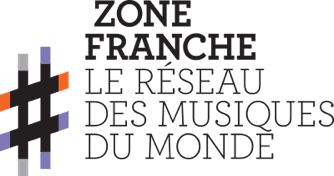When burgeoning Mellow Productions announced on 5th March that, due to the health crisis, it was cancelling the imminent launch of the Jazz Effusion event, everyone said it was exaggerating. Ten days later Barcelona was in lockdown. And it was one of the harshest lockdowns in Europe.
One year on, Mellow is just one of the city’s smaller music promoters unable to navigate the challenging waters of a cultural sector awash with uncertainty and insecurity.
Looking back over 2020, the picture is bleak by any standards. At an industry level, ticket sales for live music events in Spain fell 63.78% in 2020. As for the artists, Mister Furia from The Pinker Tones ended up with just 25% of his annual gigs. Clearly “it wasn’t the year it should have been”. The Whisper Not booking and management agency had more than 80% of their shows cancelled. Barcelona’s musicians and promoters found themselves suddenly confined to their homes, their investments rapidly converting into debt. And without a legal status equivalent to the French ‘intermittence’, the extreme precariousness of the sector’s entire value chain was brought dramatically to the fore.
Yet despite the initial shock, fear and hardship, the city’s musicians and artists didn’t stop creating. Neither did an industry convinced of the importance of culture and music for Barcelona and its citizens.
Globetrotting Cuban jazz pianist Omar Sosa took the rare opportunity of such a lengthy stint at home to connect with local artists, giving rise to the vibrant KO-BCN quartet and a series of striking videos recorded ‘On his Roof’. For Roman Daniel, the young producer behind Mans-O, the sudden halt in his normally hectic schedule gave him time to “sail through infinite Instagrams and build a clearer map of what is happening right here”. Connecting with the young emerging talent of Barcelona, in particular members of the Jokkoo Collective, led to the release of the Hi-Tech Tongue EP in October 2020 on Portuguese label XXIII: a fascinating journey in eight languages illustrating the deeply multicultural nature of his city.
Post-lockdown saw Barcelona’s inhabitants slowly emerge into a city that was often hard to recognise. Everyone was delighted with the families of dolphins swimming close to shore and being able to stroll down the normally teeming streets of central Ciutat Vella, now practically a ghost town. But the city’s young people found themselves stifled, their social life and natural need for connection hindered at every turn.
For twenty-one year-old trombone player and singer Rita Payés, it meant losing her main source of inspiration. Yet although she felt “like a chair with a leg missing”, it was during this period of almost forced introspection that she wrote many of the personal compositions which can be heard on “Como la piel”, her latest recording released this April.
A delicate, sensuous and sincere album in tones of jazz and bossa, in which Rita and her mother, classical guitarist Elisabeth Roma, are joined by Horacio Fumero and Juan Berbín, leader of another Barcelona gem, Seward.
Barcelona’s transformation into a quieter and slower-paced metropolis was not only due to people working remotely, restaurants and bars closed in the evenings and the 10 pm curfew imposed since June, but also due to the absence of tourists. The city was suddenly left to its inhabitants - a major shift as, for many years now, tourism has been one of its major industries, representing 15% of PIB. Visitors come to admire Gaudi’s monuments, but also to attend music festivals such as Sònar and Primavera Sound. In 2019, the electronic and experimental Sònar brought together over 100,000 attendees from 120 countries, while the more traditionally indie but increasingly urban Primavera Sound clocked in a staggeringly large crowd of 220,000 of which 60% came from abroad. In the spring of 2020 it soon became clear that the void left by travel restrictions would take its toll on Barcelona’s summer festivals, and in May both announced they were cancelling, albeit to return in hybrid formats that included last year’s big winner: streaming.
Cruïlla is Barcelona’s third major inner-city festival with a more national and world music slant. The decision “to carry on working” was taken early on, resulting in a new Covid-friendly format, Cruïlla XXS. Head of communication Marc Tapias recalls the amazing experience of “having 800 people seated and enjoying a concert in Barça football club’s Camp Nou”, one of the spectacular and unusual outdoor venues used. Other noteworthy events organized were the Nits del Fòrum series of concerts for which the Primavera Sound team joined forces with other promoters, and a particularly successful initiative, Sala Barcelona, launched by the Catalan Association of Concert Venues (ASCC) with the Barcelona Institute of Culture (ICUB) at Montjuic’s Castle, giving a welcome respite to night-time venues and bringing live music back to the city.
A sense of the avant-garde is deeply rooted in Barcelona’s DNA. So it was no surprise when music promoters from the legendary Sala Apolo hooked up with research scientists from Can Ruti to hold a pilot test concert for an audience of 500, without social distancing but with prior negative antigen test results. Having successfully established that the rate of contagion at the gig was zero, they took it one step further and at the end of March, a cohort of local promoters, festivals, associations and authorities came together to organize a concert by Catalan rock group Love of Lesbian for 5,000 fans inside the Palau Sant Jordi. The results were as positive as for the Apolo, and hence Barcelona has sent out a clear message that, if done properly, even in times of Covid, Culture is Safe.
A message clearly aimed at the Catalan health authorities, whose management of the crisis, marked by inconsistencies and improvisation, has made the job of producing any cultural event much harder. Marc Tapias remembers the “surrealism of press conferences in which the health authorities said that concerts were safe and asked people to stay at home in the same breath”.
So what lessons for the city and for culture can be learnt from 2020? ICUB’s Daniel Granados celebrates the way in which the sector came together, expressing a need for union and “creating ties and a production community for events”. Officially recognized as a ‘bien esencial’ in Catalonia since September 2020, no one doubts the importance of culture. But there is an urgent need for more money, support and a legal framework to allow the people behind culture, from musicians to stagehands, to be valued and to simply make a decent living. As Albert Salmerón, president of the APM (Association of Music Promoters), so rightly puts it: “culture defines us as human beings […] and culture must be central to any government’s policies”. ¡¡Que viva la cultura…segura!!


